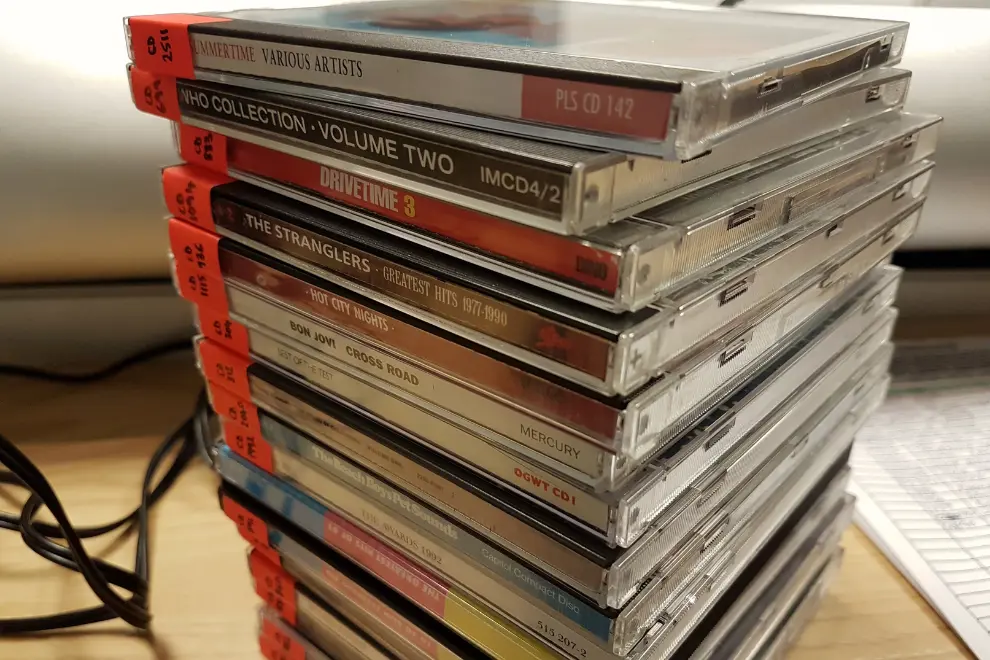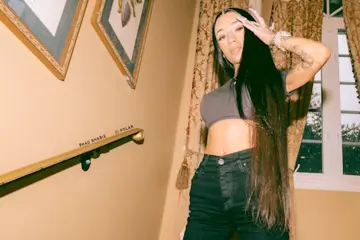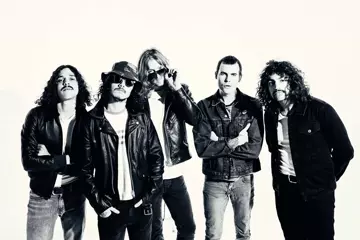Canberra music store Songland Records continues to release CDs by artists that its founder, Brian “Frog” Harris, is fond of.
The latest is Unity Gain by ReggaeSpy, put together by Spy V Spy’s founding bassist Craig Bloxom to put the Spys’ 1980s chart successful catalogue in a reggae format.
Unity Gain, released on August 2, follows a successful tour earlier this year, with a trip to Brazil and a longer victory run through Australia in spring.
“For Craig to go out and do this project, he wanted to do something different and refreshing,” Harris says. “He wanted to do something that was musically exciting for him. The record sounds fantastic.
“Spy V Spy were great musicians. Anyone who went to see them knew they were in for a powerhouse show. They put out some great music over a ten-year period. Sadly, none of it is available in a physical format anymore. The only ones are the two CDs that I’m proud to have made available.”
Spy V Spy were among the biggest live bands in the 1980s. They were hailed for their strong pop songs and their agit-politics alongside Midnight Oil (with whom they shared management and on whose Powderworks record they released their first album, Harry’s Reason) and The Clash.
Don't miss a beat with our FREE daily newsletter
Bloxom recalls: “We were a magical band with great songs, and we had a great run. But like all bands, we had our timeline, and when I left the music industry in 2003, it was for good.
“I moved to Mexico and became a professional chef. I did a four-year apprenticeship. I was working on an oil rig in the Gulf of Mexico when Cyclone Katrina hit, which was scary but fun!
“But I had some unfinished business. I wanted to learn to play bass with my fingers, like all great bass players. That led to forming ReggaeSpy. I’m feeling so joyful, I’m playing with fantastic musicians, and the audience goes wild at every show.”
CD Making
After selling music in all formats since opening Songland in September 1995, music industry veteran Harris got into CD making and distribution via his involvement with the Australian Road Crew Association (ARCA).
ARCA’s fundraising for crews in crisis through Support Act’s Roadies Fund includes the acclaimed Desk Tape series. Crew members record shows from the sound desk for personal use.
The series has clocked over 45 releases, including Midnight Oil, Crowded House, Men At Work, Australian Crawl, Models, Sports, and the Tour of Duty concert with John Farnham and Kylie Minogue. They're mostly issued on streaming services and its own Black Box Records and MGM Distribution.
When ARCA experimented with issuing their Redgum show in Amsterdam on CD, Harris noted it sold a healthy amount at Songland. When it came to the Midnight Oil release, he also urged ARCA to release it on CD, promising to get the Oils’ permission.
“I had a working relationship with [drummer/ songwriter] Rob Hirst for quite awhile, looking after the promotion, marketing, and distribution of his independent stuff,” explains Harris, whose career stints included RCA Records, Sony Music, and several radio stations.
“Through that, I got Rob’s blessing and that of the rest of the band. That was a strong and very quick seller as well. When ARCA released the Spy V Spy’s Live At The Prince of Wales 1984 tape, I made the same CD offer, and it went to #7 on the ARIA physical chart.”
As a result, Harris and Bloxom made contact after 40 years. They knew each other when Spys released their early stuff through the Oils’ Powderworks label, which was distributed by RCA.
Bloxom told him of his new reggae project and insisted that any releases go through Songland.
Squat
When the Australian music industry gets around to marking rock landmarks with plaques, 72 Darling Street in inner-city Glebe, Sydney, will be one. This is where Spy V Spy squatted from 1980 to 1987.
California-born Bloxom met English-born guitarist Michael Weiley at Nelson Bay High School in 1976. They played in north shore bands.
Around this time, Bloxom had his first taste of live reggae. It was on UB40’s first visit, and Double J was hosting a set at the ABC’s studio and giving away tickets to 100 listeners.
“It blew my fucking mind! I was fascinated with how the bass and drums worked. Then came The Specials, 2JJ played their Message To Rudy, and someone told me, ‘That’s ska from England.’ I’d never heard anything like it.”
When Bloxom and Weiley met drummer Cliff Grigg, who followed the Rastafarian faith, he invited them to stay at his Darling Street squat.
There was no heating, the roof leaked, cooking was done in the fireplace, and there were rats in the basement. In winter, they’d go to nearby Sydney University to use the gym’s hot showers.
The place was full of bohemians, drug dealers and refugees and awash with every drug in existence. In the musty basement, the three rehearsed as loudly as they wanted to and, from the get-go, knew they had something special.
They named themselves after the Spy vs. Spy comic strip in the US satirical Mad magazine.
Not having to pay rent or electricity was an ideal situation for musicians with no money. Living in the squat shaped their attitude to being outside middle-class sentiments. The joyful camaraderie also seeped into the songs, which in turn created a sense of solidarity within their audience.
They sang about racism, land rights, mindless consumerism, drug addiction, homelessness, homophobia, sexual assault, child abuse and domestic violence.
By the time of their second album, they had signed to WEA Records (Warner Music) and albums such as A.O. Mod. TV. Vers and Xenophobia (Why?) went Top 15, and they joined the Dirty Pool agency alongside Cold Chisel, The Angels, and Icehouse.
For 1989’s Trash The Planet, they were sent to England to record with Craig Leon at Richard Branson's Manor House studios. Bloxom remembers Branson’s two Irish wolfhounds, Willie and Bowser, lived in the adjacent cottage.
“It was a hot summer day, and I went into the house to get a drink. I accidentally stepped on one of them, and they started to fight each other. When I tried to pull them apart, they turned on me.
“I got taken to hospital and was on crutches for six weeks. It was horrendous, and I’m still scared of dogs.”
Touring through Germany with David Bowie was another highlight. “Michael and I were avid fans of his right from the Ziggy Stardust days. He was a genius, everything he did was touched with beauty and majesty.
“We had dinner with him backstage each night. But sitting at the table twenty feet away, he was just an ordinary guy. We had so many questions we could have asked, but we were just too tongue-tied.”
Return To Australia
On returning to Australia after twenty years, Bloxom based himself in Newcastle to start work on the reggae project. The original plan was to reggae-fie songs by the Oils, Angels and Chisel, with Richard Lara of Screaming Jets.
Lara dropped out after a few shows because of his schedule. Bloxom then teamed up with New Zealand guitarist Te Koi Tarawa and Chrissy Lowe on drums.
After a few rehearsals, the guitarist suggested they should tap into Bloxom’s past instead. Rock The Planet, Working Week and One Of A Kind benefit greatly from the reggae thrust.
“The old Spy audiences were very protective, so I was a bit apprehensive. But the shows have been wild, the people so welcoming. I am blessed; the band is so melodic and powerful.
“Jamaican reggae bands like Black Uhuru, Peter Tosh and Toots & The Maytals, there’s nothing soft about them. A deeply personal spiritual power drives them.”
The spring tour of Brazil is with the Hoodoo Gurus and GangGAJANG. The old Spys were enormous there, they toured there over a dozen times, and given a rock star treatment.
“We used to get letters from a DJ and promoter begging us to go over there. This was in the early ‘90s. Our agent said, ’He’s persistent. Go over there and do a quick tour.’ I wrote back to him, OK, pay for flights, accommodation, everything, and $1,500 a show. At the time, I thought we were only doing 1,000-capacity clubs.
“But when we got there, we got taken in a van to a huge stadium, complete with security guys with guns. I popped my head through the curtains before the show and got this ROAR when they recognised me. There were 15,000 people there!
“Before we went on, I told the promoter, We should renegotiate the deal. He said, ‘No, it’s a done deal’. So, playing a massive show like that, the three of us each got $500, and the promoter made thousands and thousands of dollars. I learned a lesson: musicians shouldn’t do deals!”
















